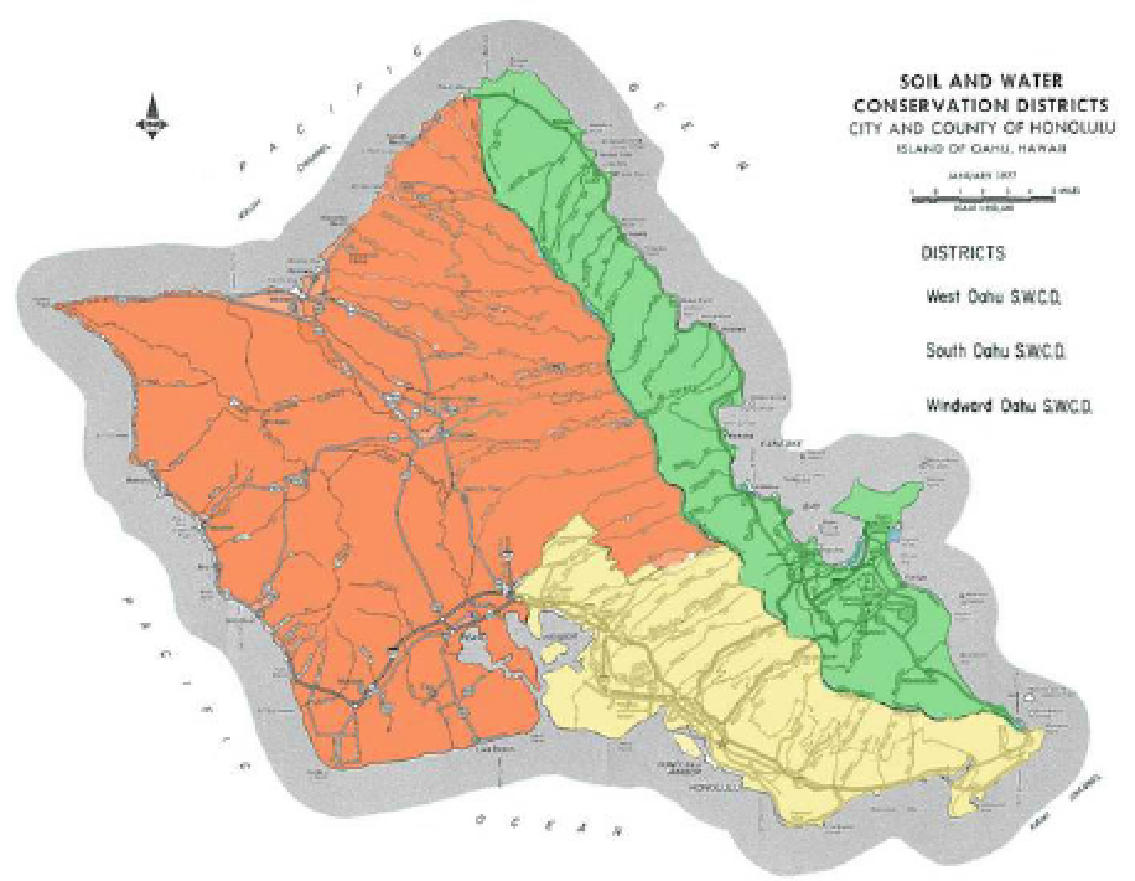HACD Annual Conference
/“Don't be the Western Family canned luncheon meat. Be the SPAM.”
--Derek Kurisu, KTA: Mountain Apple Brand
This years Hawaii Association of Conservation Districts Annual Meeting took place at the Naniloa Hotel in Hilo, on the Big Island of Hawaii. Along with motivating words Derek Kurisu and Kimo Alameda, we were also inspired by the hard working SWCD cooperators who hosted field trips at their farms. These farmers were more than willing to share their best practices, growing advice, and best of all, their lychee! We greatly appreciate the hard work the HACD put into putting on this meeting, and look forward to next year already. This summary highlights some of my favorite parts of the trip. Thank you for the wonderful experience!
-Jeana Cadby, SWCD- Oahu
Speakers:
HACD: Brenda Iokepa-Moses, HACD President, Billy Kenoi, Hawaii County Mayor
HDOA: Danielle Downey
CTAHR: Susan Cabral
HGLC: Doug Benton
NRCS: Amy Koch, Bruce Peterson, Jason Peel
KTA/BHSSP: Derek Kurisu, Kimo Alameda
DLNR:Irene Sprecher
CREP: Alex Gerkin, Kalani Matsumura
SWCD Harrison Vidinha, Kylie Wong, Jeana Cadby
ORCD: Shelby Ishida
HFB: Chris Manfredi
Windward & South Oahu District chairs share a laugh
Rainbow Falls
Sweet Potato Farm
Hamakua
Pepeekeo, Hamakua SWCD
Tung Huynh, SWCD Farmer
The first stop was a large sweet potato operation in Pepeekeo. Our host provided a wonderful explanation of the sweet potato production in Hawaii, and some of the challenges they are facing. They are growing the purple sweet potato variety specific to Hawaii, and his farm is producing 200-250,000 lbs of sweet potato per week for export.
They found that incorporating cover crops into their farming practices helps reduce nematodes, nitrogen inputs and soil erosion caused by heavy rains, as well as increase their soil biodiversity.
Damage caused by the sweet potato weevil has been very problematic, and they have found that simple changes such as hilling the mounds can help reduce the pest pressure.
Hawaii is a major exporter of purple sweet potato
OK Farms Hawaii
Hamakua
Puueo, Hamakua SWCD
Troy Keolanui, SWCD Director and Farmer
OK Farms Hawaii in Puueo grows coffee, macadamia nuts, lychee, longan, citrus, cacao and heart of palm. Co-owner Troy Keolanui took the HACD tour group to see the 17,000 lychee trees on their 1,000-acre property.
The main varieties of lychee they grow are, Kaimana and Bosworth, which produce over 75,000 lbs of fruit per year. Every two years the trees are topped, and the trunks are girdled annually. He recommends using a special girdling knife and staggering the process for a longer fruiting season. He also regularly applies potassium chlorite to induce flowering.
Peeling the Palm
Troy Keolanui from OK Farms Hawaii treated visitors to a sample of delicious and fresh heart of palm, the inner core and growing bud of a palm tree.
Using his machete and fancy knife skills, he chipped away at the outer sheath until he reached the succulent core.
Heart of Palm
Picking lychee
Samples for the guests
Cracking mac nuts
Piggery and Diversified Ag
Mt View
Mt View, Puna SWCD
Atto Assi & Neena Roumell, SWCD Farmers
The most noticeable thing about the piggery operation in Mountain View was what wasn't there, the smell. Atto Assi and Neena Roumell are using a modified Korean Natural Farming (KNF) program on their piggery operation to deal with the pig wastes, flies and smell.
With the use of IMO4 and biochar, they can enhance the fermentation process of the pig wastes, As a result, rather than replacing the litter, they simply add weekly lactic acid treatments and tree trimming green waste mulch when needed.
They feed the animals honohono grass, macadamia nuts, and plant waste, and don't need to use antibiotics. They claim the meat quality is superior to conventionally raised pigs, and our tour group held a tasting to confirm it. It felt a little wrong to eat in front of the pigs, but everyone agreed that the meat was quite delicious.
Windward Oahu chair in clean booties
IMO Fever
IMOs or Indigenous Microorganisms are part of the Korean Natural Farming Process. Creating them is a process that consists of culturing naturally occurring microorganisms to minimize the need for applications of inorganic soil amendments.
After collecting local microorganisms with the initial inculcation, levels of IMO are made by mixing the initial collection with different mediums to increase their numbers. These increases with changed mediums are categorized as IMOn and are generally applied to soil or litter at level 4.
Pig farmer
Happy pig
Booties keep the sty clean


























